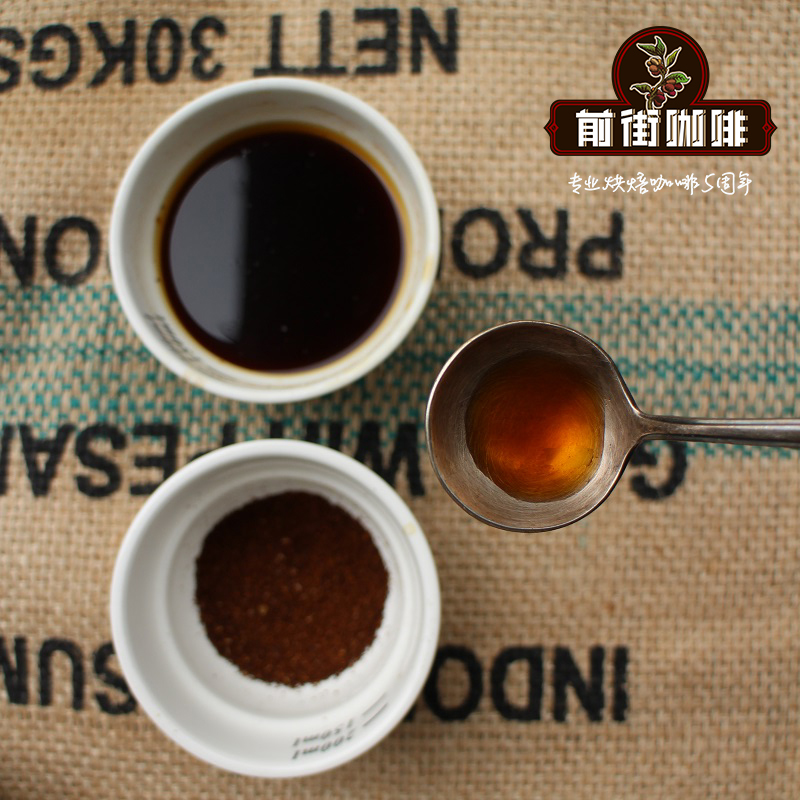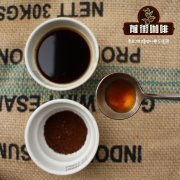Yega Sheffield grades are mainly defective beans. Is Arabica coffee beans expensive?

Professional coffee knowledge exchange more coffee bean information please follow the coffee workshop (Wechat official account cafe_style)
A brief introduction to the classification of Qianjie-Yega Xuefei
The Ethiopian Commodity Exchange (ECX-Ethiopia Commodity Exchange) is an agricultural market where buyers and sellers come together to trade, ensuring quality, delivery and payment. ECX's vision is to change Ethiopia's economy by becoming the first choice in global commodity markets. ECX's mission is to connect all buyers and sellers in an efficient, reliable and transparent market through the use of innovation and technology, based on continuous learning, fairness and commitment to excellence.
ECX distributes regional warehouses throughout Ethiopia to provide collection, grading and storage of crops, and then enters a unified trading and auction platform to buy and sell transactions for registered members of ECX. The buyers here are actually private exporters, and Ethiopia has required all private exporters to buy and sell coffee beans through ECX since 2008. Its problem is that it just doesn't meet the traceability requirements of current buyers. ECX trades coffee only by region and fails to tell you which processing station it comes from, or it may come from many different processing stations and may be mixed together in sacks and auctioned in a large batch. But I believe that after the following rigorous selection of the Speciality G1, will you still question its quality?
Ethiopia's old grading method was simply classified according to the number of defects. The highest grade of beans washed with water was Grade 1-G1 and the highest grade of sunlight was Grade 3-G3. The current grading method is based on the combination of physical attribute features and cup flavor characteristics developed by ECX.
All coffee is defined as three types according to the way it is treated, insolated or washed:
A. Speciality (washed & unwashed): the number of defects is small, and the cup test has high flavor quality.
B. Commerical (washed & unwashed): not up to the boutique level, but higher than the domestic consumption grade
C. Local / Domestic (washed & unwashed): coffee with a large number of defects (unripe beans), out of season and poor storage.
Among them, Specialty and Commerical are aimed at the international export market, and Local is the coffee sold for the domestic market.
The specific grading and scoring criteria of ECX are as follows:
a. Score definition of washing treatment method
1. Physical features account for 40%: number of defects (20%), appearance size (10%), color (5%), smell (5%)
2. 60% of the cup quality: cleanliness (15%), acidity (15%), taste (15%), flavor characteristics (15%).
b. Score definition of solarization treatment
1. Physical features account for 40%: number of defects (30%), odor (10%)
2. 60% of the cup quality: cleanliness (15%), acidity (15%), taste (15%), flavor characteristics (15%).
c. Overall summary:
1. According to the method of treatment, all coffee is classified as: sun exposure, water washing.
two。 Each scored 9 grades of G1-G9 according to physical characteristics and cup test basic quality.
3. The G1-G3 is tested again according to the SCAA standard, and its flavor properties are evaluated in more detail, which is not lower than that of the
G1GI G2 with a score of 85 is rated as Q1
4. It is rated as Q2 for the G1 recordings between 80 and 85, and G3 for all G1 recordings with scores below 80.
5. Q1 and Q2 are classified as Specialty Grade exports. G4-G9 kept the original grade unchanged and was classified as CommercialGrade export together with G3.
Many customers ask if Arabica coffee beans are expensive in front of the street. Of course, high-quality Arabica beans are expensive, but low-quality Arabica beans are also relatively cheap, which is why there is a grading system for coffee beans.
Knowledge expansion: "acid" is similar to astringent, similar to red wine, there is the so-called "sweet is easy, good acid is rare". However, when the coffee temperature decreases, the "acidity" will increase accordingly.
In short: Qianjie is a coffee research hall, happy to share the knowledge about coffee with you, we share unreservedly just to make more friends fall in love with coffee, and there will be three low-discount coffee activities every month. The reason is that Qianjie wants to make more friends drink the best coffee at the lowest price, which has been Qianjie's tenet for 6 years!
END
Important Notice :
前街咖啡 FrontStreet Coffee has moved to new addredd:
FrontStreet Coffee Address: 315,Donghua East Road,GuangZhou
Tel:020 38364473
- Prev

A brief introduction to Yega Chevy Red Cherry Coffee which coffee beans are grown in Arabica
Professional coffee knowledge exchange more coffee bean information please follow the front street of the coffee workshop (Wechat official account cafe_style)-introduction to Red Cherry and Arabica derived species the Red Cherry Project (Operation Cherry Red) is led by the Dutch company Trabocca, half of which is sponsored by the Dutch government. Since 2005, working with many small coffee cooperatives
- Next

Goro sun Hambela hand rushes Sidamo Fakui coffee beans Arabica varieties are noble only because
Professional coffee knowledge exchange more coffee bean information please follow the coffee workshop (Wechat official account cafe_style) front street-Sidamo Sakuran, Arabica variety profile currently there are about 20 processing plants of various sizes in Hambella production area. Hongshun, as the coffee raw bean company in the coffee producing area of Ethiopia, has been cooperating in the GUJI zone Hambella producing area since 2016.
Related
- Beginners will see the "Coffee pull flower" guide!
- What is the difference between ice blog purified milk and ordinary milk coffee?
- Why is the Philippines the largest producer of crops in Liberia?
- For coffee extraction, should the fine powder be retained?
- How does extracted espresso fill pressed powder? How much strength does it take to press the powder?
- How to make jasmine cold extract coffee? Is the jasmine + latte good?
- Will this little toy really make the coffee taste better? How does Lily Drip affect coffee extraction?
- Will the action of slapping the filter cup also affect coffee extraction?
- What's the difference between powder-to-water ratio and powder-to-liquid ratio?
- What is the Ethiopian local species? What does it have to do with Heirloom native species?

